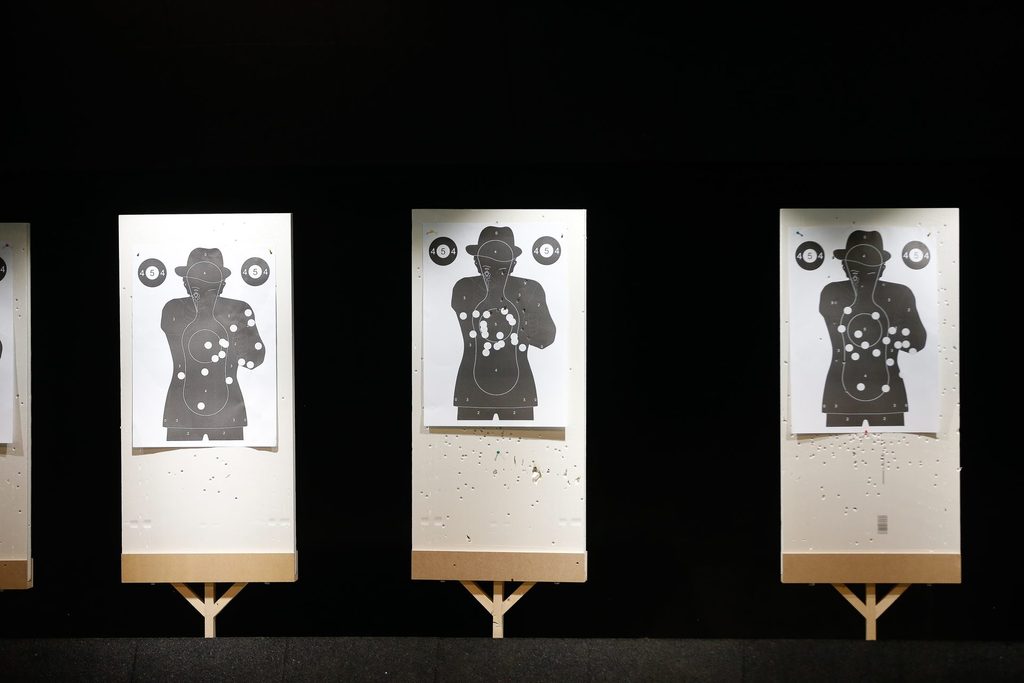In the last decade, the number of legally registered firearms in Belgium has grown year on year. Between 2010 and 2019, the total number of registered firearms increased by 13% to 805,148. Wallonia is still the region with the most registered weapons (44% of Belgian registrations), closely followed by Flanders (42%) and 10% in Brussels.
Belgium has a series of strict laws that keep track of the propagation of legally registered firearms. To possess a weapon, applicants must be at least 18 years old, have a clean criminal record, provide a certificate of good health, undertake tests on gun safety, and provide a legitimate reason for wanting to own a weapon.
Many owners describe national gun laws as restrictive. Yet in reality, Belgians have the right to own a wide arsenal of weaponry. The only caveat is that the gun licence procedure must be repeated every five years.
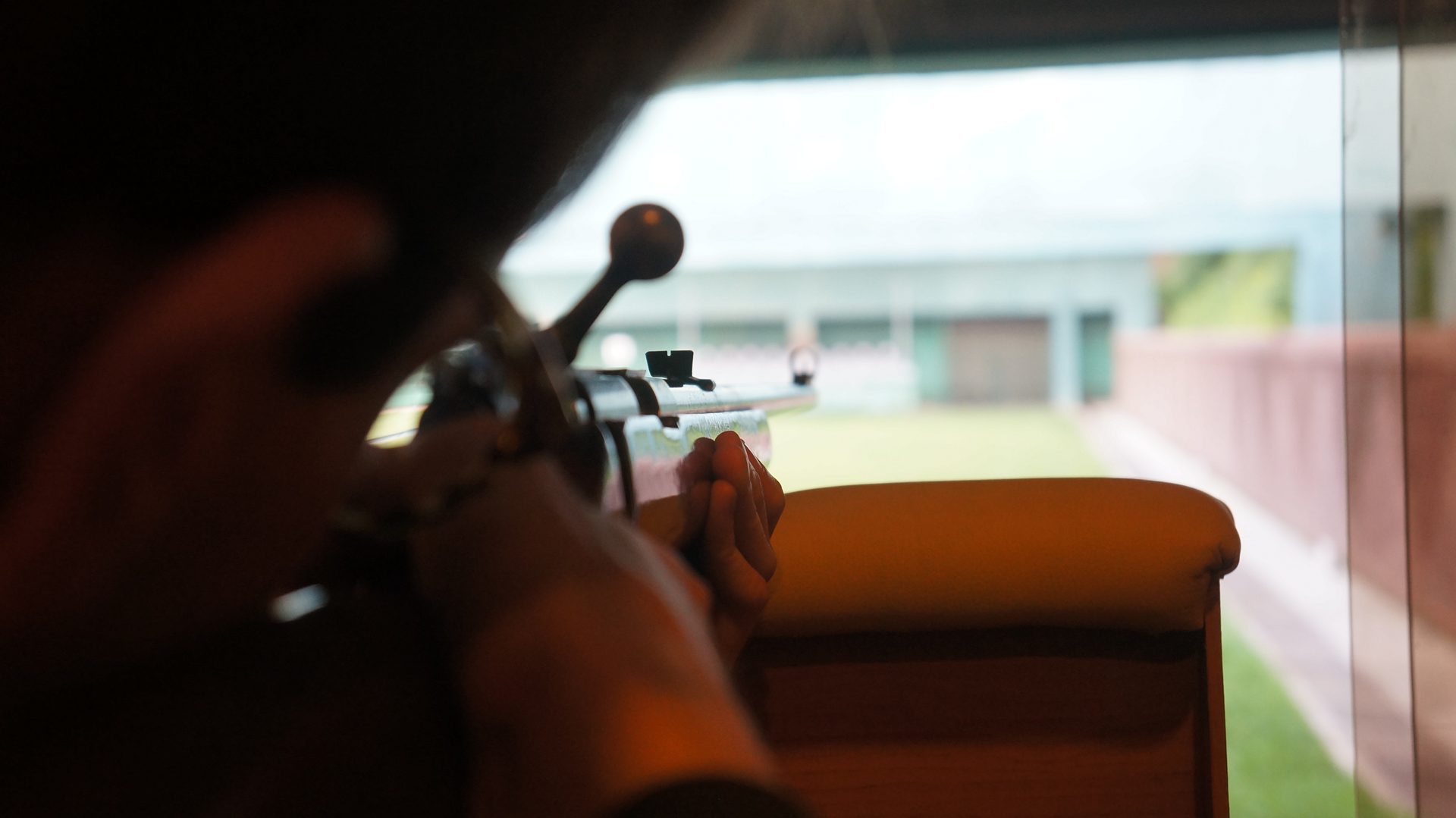
Credit: Uri Tours/Wikimedia Commons
From historical weapons such as muskets and black powder rifles to handguns, shotguns, long rifles, and more, licensed shooters can possess an array of weapons. Moreover, restrictions on the calibre of the firearm are much less severe than in nearby countries. In theory, only fully automatic or assault rifles are banned.
With some licence types, customers can purchase a variety of different calibre weapons, ranging from small calibre marksman rifles to high capacity long rifles, such as AR-15 or Kalashnikov-style rifles.
Gun licences also allow ownership of multiple weapons. In fact, it is possible (and with the patience to complete the reams of paperwork) for someone with a sport shooting licence to own up to 30 weapons of different types. In Belgium, the average gun owner possesses four different weapons.
“Firearm ownership in Belgium is driven primarily by hunting, sports, and recreational shooting. Sports shooting is more prominent in the north and hunting more prominent in the south,” a report published by the Flemish Peace Institute in 2022 noted.
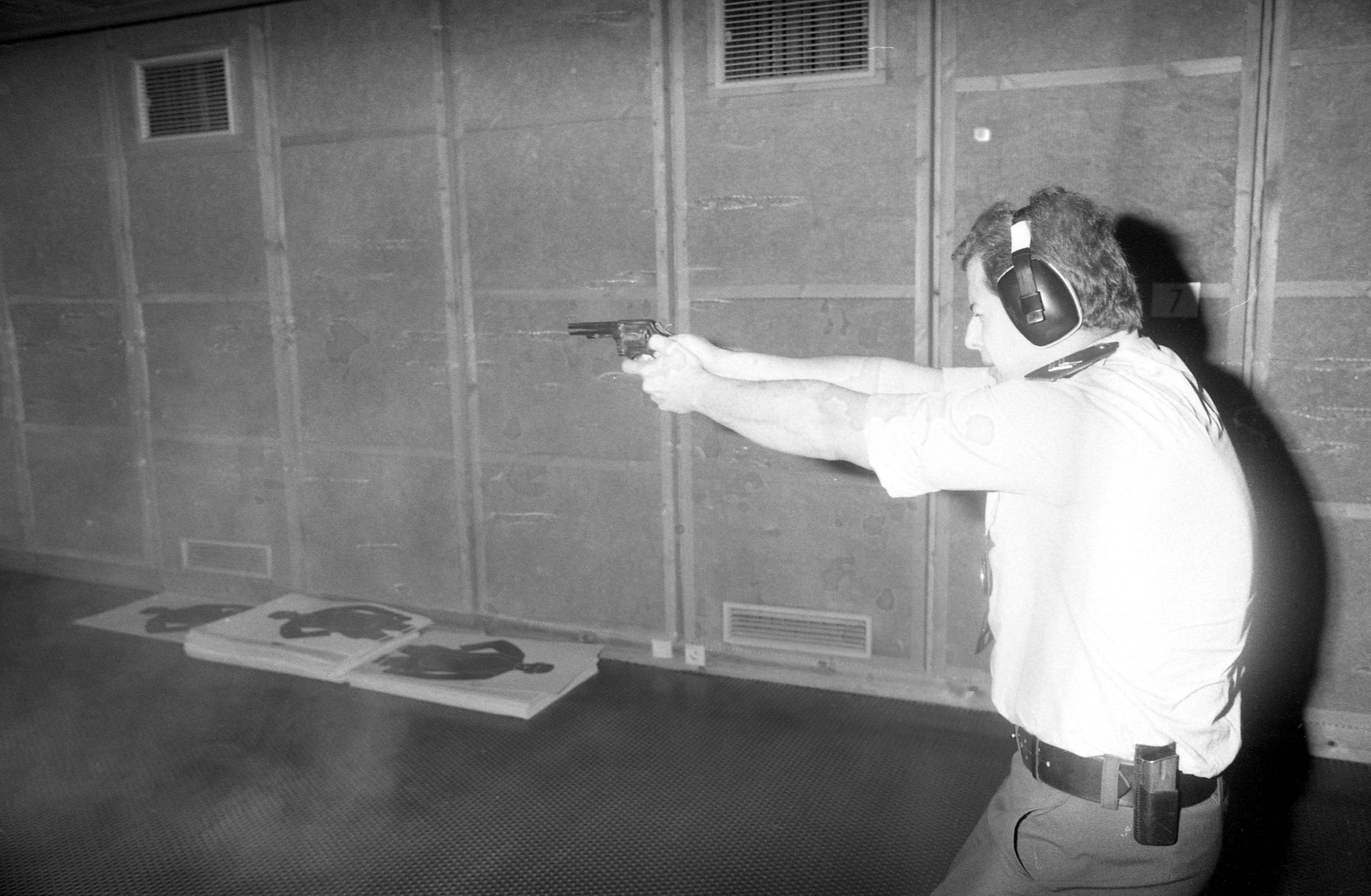
Credit: Belga Photo Archives
Lax laws
Before 2006, Belgium’s gun laws were much less restrictive and gun ownership more widespread. Small calibre .22 rifles were considered “leisure” weapons and could be purchased easily. Similarly, hunting shotguns required little more than ID to purchase. But the 2006 murder of a woman and toddler in Antwerp led to Belgian gun laws being significantly tightened.
Figures show a marked drop in registered firearms between 2006 and 2010, as many gun owners gave up their firearms rather than apply for permits, especially in Flanders. Only in 2017 did the number of registered weapons in Belgium reach their pre-restriction levels.
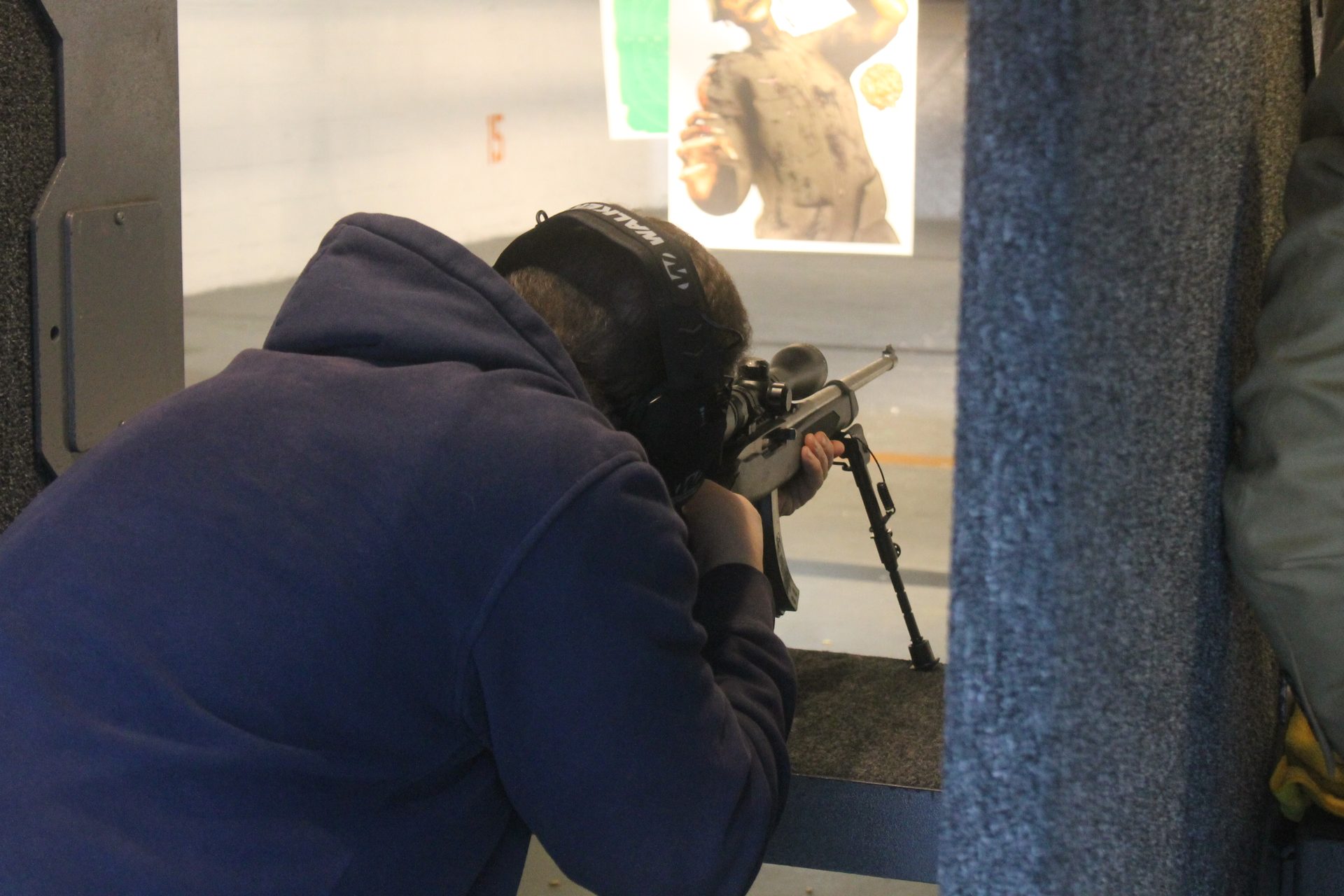
Credit: Noah Wulf/Wikimedia Commons
Sport shooting still remains a niche hobby in Belgium but it has a loyal following with gun ranges, clubs, and other shooting facilities across the country. In Brussels alone, there are nearly half a dozen shooting ranges, both indoor and outdoor. These are typically members-only facilities but many offer one day shooting courses for those who are interested.
Growing gun violence?
Given the reasonably permissive laws regarding gun ownership and the abundance of gun owners, one might ask whether Belgium suffers from high levels of gun violence. The answer depends on crime definitions.
Statistics about crime carried out with registered weapons versus unregistered are not kept. Homicide and homicide attempts are mostly committed using unregistered weapons, but suicides and attempted suicides are usually performed with legal weapons.
Indeed, after gun laws were tightened and Flemish citizens handed back their weapons, there was a marked drop in the number of suicides using firearms. Likewise, gun deaths across Belgium also fell – between 2000 and 2017 firearm homicides dropped 83%.
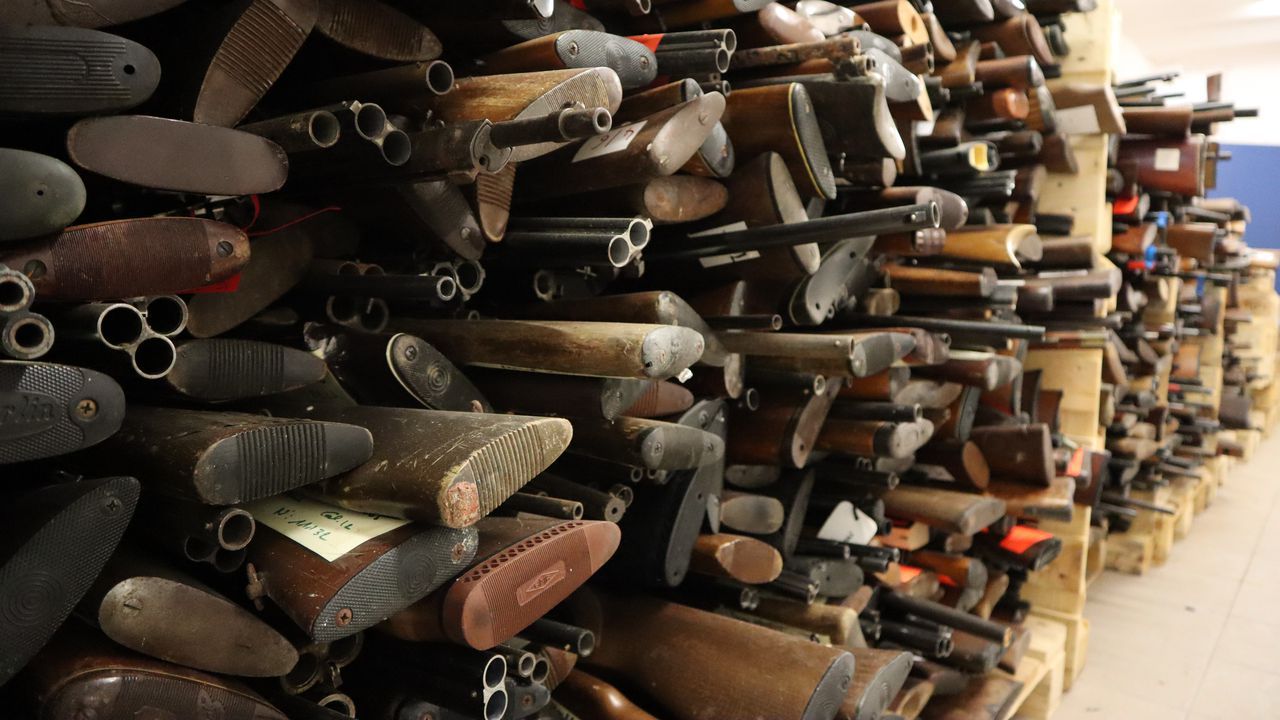
A collection of guns seized by the police. Credit: Belgium's Federal Police
Though exact numbers are not available, it is clear that the more stringent laws introduced brought down gun-related deaths.
But legal gun ownership, even tightly regulated, can still lead to tragedies. In 2022, a young boy got hold of his father’s legally-owned CZ38 pistol and accidentally shot his younger sister in the head, despite the gun being stored legally and correctly. The young girl fortunately recovered from her near-fatal injuries.
Whilst Belgium has considerable levels of violent organised crime, this is typically using illegal weapons smuggled into Belgium. In some instances, these can be purchased on the black market for just a few hundred euros.
Between 2006 and 2020, there were 1,615 cases of illegal firearm possession registered by the National Institute for Criminalistics and Criminology (NICC). Pistols are especially popular as an illegal weapon.
Related News
- Terrorist plot suspects were planning to assassinate Bart De Wever
- One in five Americans has a family member killed by a gun, study finds
- Hunter arrested after helicopter chase in Wallonia
Restrictive gun laws do not prevent criminals from accessing an alarming arsenal, much of which is illegal even with a licence. Between 2006 and 2020, the NICC processed 681 prohibited weapons, including 130 sub-machine guns, 100 rifles, 261 pistols, and even 12 fully automatic machine guns.
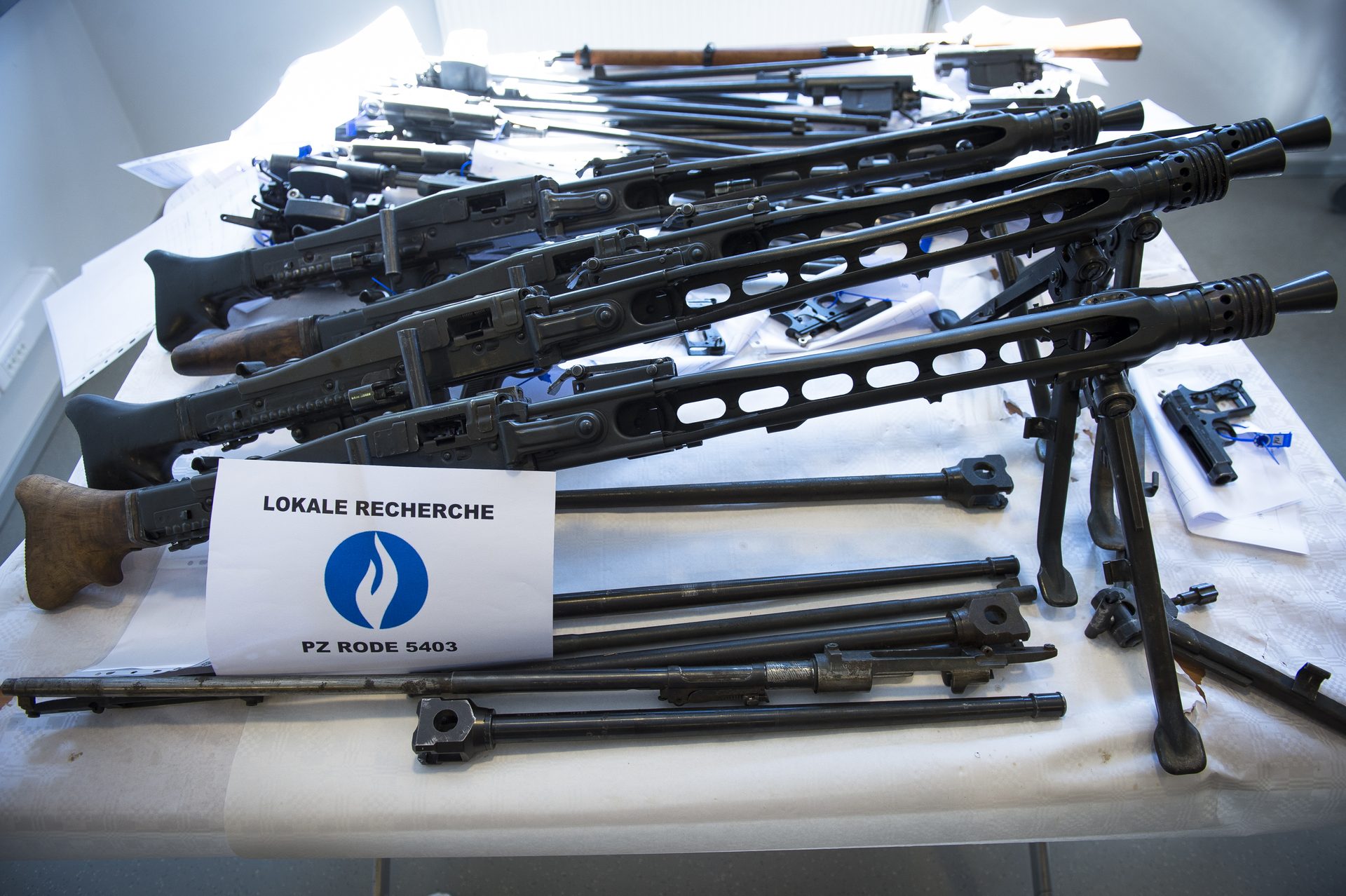
Firearms confiscated by Police Zone Rode during searches in Antwerp. Credit: Belga/ Laurie Dieffembacq
“Unsurprisingly... prohibited firearms are used most often in the criminal context: 29% in organised crime, 31% in the drug milieu and 48% in offences against state security... Close to all the firearms used for suicide (92%) were subject to license," the report noted.
Ultimately, government strategy for tackling violence with illegal weaponry will differ from its approach to legal weapons. While Belgium police work hard to prevent firearms from getting into the wrong hands, its approach to legally-registered weapons mostly concerns harm reduction and proper mental-health screening.

